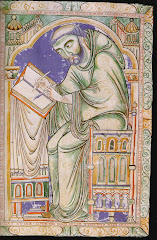When readership is going down and everyone wants a newspapers for free. Also the continued debates this year about the censorship/ freedom of speech. Isn’t it about time we looked again into why we have newspapers?
The Manchester Guardian was founded by John Edward Taylor in 1821, and was first published on May 5 of that year. The paper's intention was the promotion of the liberal interest in the aftermath of the Peterloo Massacre and the growing campaign to repeal the Corn Laws that flourished in Manchester during this period. The Guardian was published weekly until 1836 when it was published on Wednesday and Saturday becoming a daily in 1855, when the abolition of Stamp Duty on newspapers permitted a subsequent reduction in cover price (to 2d) allowed the paper to be published daily.
The Guardian achieved national and international recognition under the editorship of CP Scott, who held the post for 57 years from 1872. Scott bought the paper in 1907 following the death of Taylor's son, and pledged that the principles laid down in the founder's will would be upheld by retaining the independence of the newspaper. CP Scott outlined those principals in a much-quoted article written to celebrate the centenary of the paper: "Comment is free, but facts are sacred... The voice of opponents no less than that of friends has a right to be heard."
The above was an excerpt from the Guardian webpage here is a link to read it in full History of the Guardian
The Guardians News & Media Archive: An Overview
The Guardian News & Media Archive makes sure that these principles remain with the newspaper. The archive promotes the histories and values of the Guardian and the Observer newspapers by collecting and making accessible material that provides an accurate and comprehensive history of the papers.
The archive holds official records of the Guardian and the Observer and also seeks to acquire material from people who have been associated with the papers. As well as corporate records the archive therefore holds correspondence, diaries, notebooks, original cartoons and photographs belonging to staff of the papers. It does not however hold the newspapers themselves.
An oral history project has been undertaken to record the memories of people who have worked for either the Guardian or the Observer over the last 70 years.
Again this is another excerpt. Please do visit the Archive Catalogue as it has very many interesting records. Plus a digital archive too (there is a fee to have an entry pass).
I felt this needed to be raised as many people do not realise what brilliant resources we have at our fingertips!



"If you don't read the newspaper, you're uninformed. If you read the newspaper, you're mis-informed." Mark Twain.
ReplyDelete